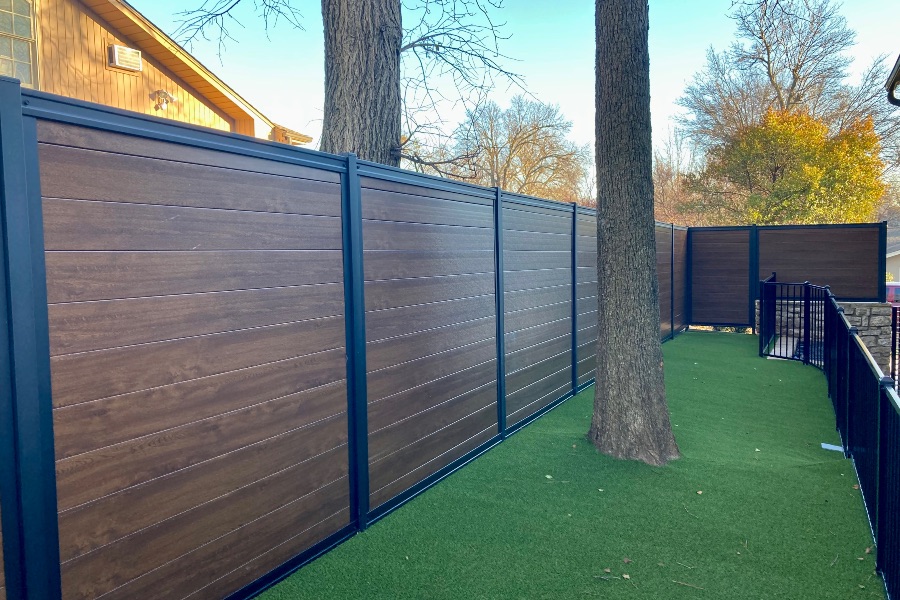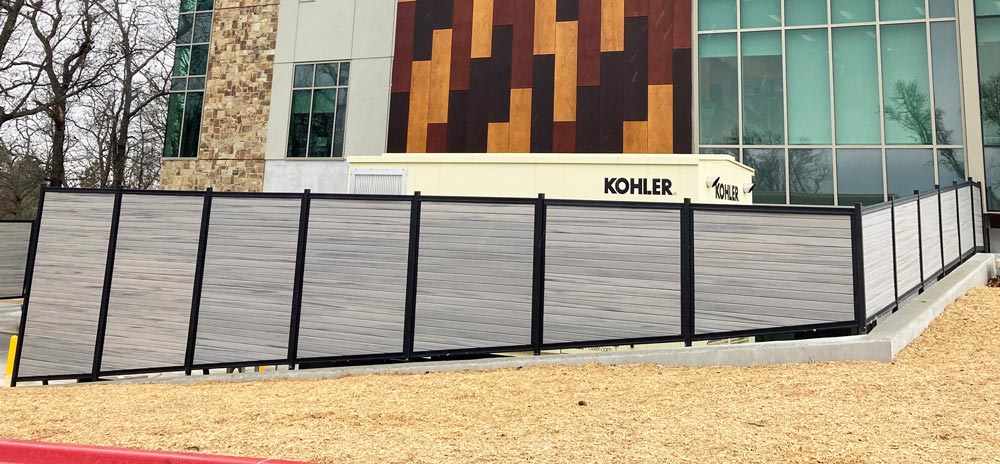Featured
When you determine to mount a fence around your house, it's vital to understand the authorization needs certain to your location. While installing a fence can look like a simple home improvement project, regional laws and laws must be followed to make sure the installation is certified and lawful. Stopping working to protect the correct permits might cause penalties or even require you to remove the fence. Here's an extensive consider the permits you might need for fence installation.
Why Do You Required a License for Fence Installation? A fencing is greater than just a barrier between residential or commercial properties-- it can influence safety and security, property value, aesthetics, and also ecological conditions. City governments call for authorizations to make certain that fences satisfy particular criteria and do not trigger issues for energies, neighbors, or the area all at once. Permits also ensure that the installation abides by zoning regulations, constructing codes, and safety and security policies.
![]()
Kinds Of Authorizations You May Need. Structure License. A building license is one of the most common licenses required for fencing installation. If you're constructing a fence over a specific height (generally over 6 feet), you'll likely need a building authorization.
Zoning Permit. A zoning license guarantees your fencing complies with elevation, problem, and place laws. Fences might require to be set back a particular distance from walkways, roadways, or residential property lines to protect against obstruction or disturbance with energies.
HOA Authorization. You might require to seek authorization before mounting a fence if your residential property is part of a home owners association (HOA) HOAs typically have guidelines that govern the aesthetics and structure of fencings to guarantee they are in consistency with the neighborhood. You may need to send your plans for authorization, and the HOA may limit fencing elevation, product, or style.
Specialized Permits. In some locations, there might be extra authorizations required for specific situations. If your fencing is near a secured ecological area or located in a flood area, you may need to get specialty authorizations related to environmental impact. If the fence is in a location with below ground energies, you may need to acquire clearance to prevent harmful pipelines or cables.
![]()
Easement or Energy Firm Approval. Prior to setting up a fencing, it's crucial to check whether the residential property includes an easement, such as an utility easement, which can influence where you can position your fence. Easements are locations of land marked for public or exclusive energies, and you may need consent from the energy firm or various other authority to develop within this area.
Just How to Discover What Permits You Required. To make sure that you're adhering to all the required regulations, here's how you can determine the details permits needed for your fence setup:
![]()
Visit Your City Government Office: The primary step is to talk to your local structure or zoning department. Numerous cities and counties have guidelines readily available online that define what kinds of permits are required for fencing installment. If not, calling or visiting the workplace personally can assist make clear the process. Check Your City's Website: Many districts offer details about fencing setups and the authorizations called for through their main internet sites. Some websites even permit you to submit applications on the internet. Consult a Fence Setup Professional: If you're not sure about neighborhood laws, a specialist fence professional can aid. They know with the permitting procedure and can direct you with the steps. The Repercussions of Not Obtaining a Permit. Failing to protect the essential authorizations before setting up a fence can lead to significant consequences. You might be fined or called for to get rid of the fence completely. In addition, if you choose to market your building in the future, the absence of a license might deter potential buyers, as they may see it as an indicator that the home is not compliant with neighborhood regulations. Ensuring that you have the correct permits will save you time, money, and migraines in the lengthy run.
Conclusion. Mounting a fence around your household property can add both security and visual appeal, however it is very important to guarantee you're complying with the lawful action in the process. Investigating the details license requirements for your area, consisting of structure authorizations, zoning regulations, HOA authorization, and energy permissions, will help ensure your fencing installation goes smoothly. Making the effort to comprehend these needs currently can save you from costly mistakes and potential legal problems down the line.
Why Do You Required a License for Fence Installation? A fencing is greater than just a barrier between residential or commercial properties-- it can influence safety and security, property value, aesthetics, and also ecological conditions. City governments call for authorizations to make certain that fences satisfy particular criteria and do not trigger issues for energies, neighbors, or the area all at once. Permits also ensure that the installation abides by zoning regulations, constructing codes, and safety and security policies.

Kinds Of Authorizations You May Need. Structure License. A building license is one of the most common licenses required for fencing installation. If you're constructing a fence over a specific height (generally over 6 feet), you'll likely need a building authorization.
Zoning Permit. A zoning license guarantees your fencing complies with elevation, problem, and place laws. Fences might require to be set back a particular distance from walkways, roadways, or residential property lines to protect against obstruction or disturbance with energies.
HOA Authorization. You might require to seek authorization before mounting a fence if your residential property is part of a home owners association (HOA) HOAs typically have guidelines that govern the aesthetics and structure of fencings to guarantee they are in consistency with the neighborhood. You may need to send your plans for authorization, and the HOA may limit fencing elevation, product, or style.
Specialized Permits. In some locations, there might be extra authorizations required for specific situations. If your fencing is near a secured ecological area or located in a flood area, you may need to get specialty authorizations related to environmental impact. If the fence is in a location with below ground energies, you may need to acquire clearance to prevent harmful pipelines or cables.

Easement or Energy Firm Approval. Prior to setting up a fencing, it's crucial to check whether the residential property includes an easement, such as an utility easement, which can influence where you can position your fence. Easements are locations of land marked for public or exclusive energies, and you may need consent from the energy firm or various other authority to develop within this area.
Just How to Discover What Permits You Required. To make sure that you're adhering to all the required regulations, here's how you can determine the details permits needed for your fence setup:

Visit Your City Government Office: The primary step is to talk to your local structure or zoning department. Numerous cities and counties have guidelines readily available online that define what kinds of permits are required for fencing installment. If not, calling or visiting the workplace personally can assist make clear the process. Check Your City's Website: Many districts offer details about fencing setups and the authorizations called for through their main internet sites. Some websites even permit you to submit applications on the internet. Consult a Fence Setup Professional: If you're not sure about neighborhood laws, a specialist fence professional can aid. They know with the permitting procedure and can direct you with the steps. The Repercussions of Not Obtaining a Permit. Failing to protect the essential authorizations before setting up a fence can lead to significant consequences. You might be fined or called for to get rid of the fence completely. In addition, if you choose to market your building in the future, the absence of a license might deter potential buyers, as they may see it as an indicator that the home is not compliant with neighborhood regulations. Ensuring that you have the correct permits will save you time, money, and migraines in the lengthy run.
Conclusion. Mounting a fence around your household property can add both security and visual appeal, however it is very important to guarantee you're complying with the lawful action in the process. Investigating the details license requirements for your area, consisting of structure authorizations, zoning regulations, HOA authorization, and energy permissions, will help ensure your fencing installation goes smoothly. Making the effort to comprehend these needs currently can save you from costly mistakes and potential legal problems down the line.
Latest Posts
What Permits Are Required for Installing a Fence My Area?
Published Dec 23, 24
0 min read
What Allows Are Needed for Mounting a Fence My Location?
Published Dec 23, 24
0 min read
Top GMC Vehicles for Sale in Morris, IL
Published Dec 23, 24
1 min read